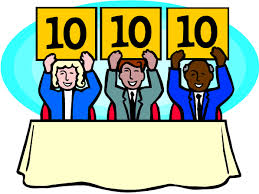After we return from each competition, we take the scores and feedback, transcribe the information into a document, and distribute it to our studio families. Many times, the results of the dance competition scoring reiterate information we’ve been communicating, and it serves as reinforcement for areas of improvement.
From the perspective of a teacher/competition judge, I’ve realized that critiques can be critical to dancers’ development. So, it’s important for studios to leave competitions with constructive feedback.
Sharing Dance Competition Scoring and Critiques
I have spoken to many Studio Directors, Owners, and Instructors that choose not to use their competition critiques in any way, shape, or form. If you’re selecting events with quality critiques (something that should be a critically important factor in competition selection), you should pass the information to your students and/or their parents.
Sharing this information increases the value of the competitive experience for your studio families. If you’re using competition as an educational experience, this reiterates your mission and stance. Your studio families will appreciate it!
How Judges Need to Offer Critiques
While using competition critiques back home is important, it is even more important that the critiques be thoughtful, informative, positive, encouraging, and constructive.
The standards for critiques has to be higher. How many times have we heard of feedback that consists of a judge singing the song lyrics? Or, what about the routine that doesn’t perform well that contains audio with no feedback and only a “good job” at the end? Unfortunately, this happens too often.
The process is multi-tiered:
(1) Competitions have to demand excellence of their judges.
(2) Studios have to expect a high standard when attending events.
(3) Studios have to use the materials provided by a competition.
This morning, I am traveling back from a judging weekend. As I was flying out on Friday morning, I committed myself to offering critiques that were meaningful and thoughtful. Those kinds of critiques can potentially make the difference in the life of a dancer.
The gestures are small, but maybe offering a student a tip on prepping for a turn sequence or expanding their movement on the stage could motivate a child to the next level.
As teachers and judges (and for many of us that serve as both), let’s continue working on increasing the value of the dance competition industry. We all know the experience is about more than a placement or a trophy; it is about personal success, improvement, and accomplishment.
Let’s promote positivity and progress!




